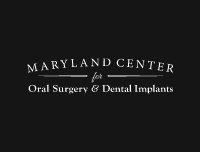 Wisdom teeth are your third molars. There are usually two on the bottom arch of your mouth and two on the top arch, and they grow at the very back of the mouth.
Wisdom teeth are your third molars. There are usually two on the bottom arch of your mouth and two on the top arch, and they grow at the very back of the mouth.
For many people, inadequate space in the jaw causes problems for the development of these molars. If the teeth are unable to emerge completely from the gums, they become “impacted” wisdom teeth.
Problems with Impacted Wisdom Teeth
When wisdom teeth become impacted, they create a passage between the mouth and the internal gums. Bacteria can collect here, leading to gum disease and oral infection. At this point, you may experience one or several symptoms:
- Pain in the area of the impacted wisdom teeth.
- Sensitivity and visual signs of infection.
- Damage to adjacent teeth and tooth decay.
- Cysts and tumors.
Fortunately, surgery can extract impacted wisdom teeth to prevent serious discomfort and problems for oral health.
Expert Advice in the Removal Decision
At The Maryland Center, we have years of experience performing extractions and are considered a leading oral surgery practice in the Mid-Atlantic region. This background allows us to evaluate and make effective recommendations for impacted wisdom teeth.
We supplement this decision with the latest technology, including digital radiography and 3D Cone Beam imaging. The latter gives us three-dimensional and cross-sectional views so that we can fully review your mouth’s anatomy.
Your surgeon will likely advise removing wisdom teeth if they are impacted or have the chance to become impacted. Making the decision at an early age can help you prevent the symptoms described above. Younger patients also tend to have less developed root structures, which makes for an easier procedure and recovery.
Wisdom teeth removal is a very common procedure that can prevent serious and unwanted complications down the road. Talk with your general dentist about your options, and then contact The Maryland Center to schedule your initial consultation.
Call your local office of The Maryland Center for an appointment today.




